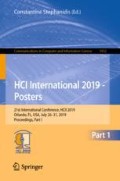Abstract
The proliferation of technology has led to increased reliance on software. In software development, efficiencies can be gained by developers who reuse previously written code rather than starting from scratch. Although this practice has advantages, it can lead to security vulnerabilities. As such, it is important to understand the antecedents to software reuse. The present study explored how personality affects the decision to reuse software. Fourteen participants were recruited to evaluate 18 code artifacts. Results indicated that those participants higher in agreeableness were more likely to reuse the computer code than those lower in agreeableness. However, we found no evidence that the trustworthiness–reuse relationship was strengthened for those higher in agreeableness. In addition, there was no relationship between openness and reuse, nor did the interaction between openness and trustworthiness predict reuse. Post hoc exploratory analyses revealed agreeableness, but not openness, weakened the relationship between perceptions of code trustworthiness and time spent reviewing code.
DISTRIBUTION STATEMENT A. Approved for public release: distribution is unlimited. 88ABW Cleared 03/22/19; 88ABW-2019-1231.
Access this chapter
Tax calculation will be finalised at checkout
Purchases are for personal use only
References
Alarcon, G.M., Militello, L.G., Ryan, P., Jessup, S.A., Calhoun, C.S., Lyons, J.B.: A descriptive model of computer code trustworthiness. J. Cogn. Eng. Decis. Making 11, 107–121 (2017). https://doi.org/10.1177/1555343416657236
Ryan, T.J., Walter, C., Alarcon, G.M., Gamble, R.F., Jessup, S.A., Capiola, A.: The influence of personality on code reuse. In: Proceedings of the 52nd Hawaii International Conference on System Sciences, 8–11 January 2019. University of Hawaii, Manoa (2019)
Mayer, R.C., Davis, H.C., Schoorman, F.D.: An integrative model of organizational trust. J. Acad. Manag. Rev. 20, 709–734 (1995). https://doi.org/10.5465/amr.1995.9508080335
Lee, J.D., See, K.A.: Trust in automation: designing for appropriate reliance. Hum. Factors: J. Hum. Fact. Ergon. Soc. 46, 50–80 (2004). https://doi.org/10.1518/hfes.46.1.50_30392
Chaiken, S.: Heuristic versus systematic information processing and the use of source versus message cues in persuasion. J. Pers. Soc. Psychol. 39, 752–766 (1980). https://doi.org/10.1037/0022-3514.39.5.752
Alarcon, G.M., Ryan, T.J.: Trustworthiness perceptions of computer code: a heuristic-systematic processing model. In: Proceedings of the 51st Hawaii International Conference on System Sciences, pp. 5384–5393 (2018). https://doi.org/10.24251/hicss.2018.671
Gigerenzer, G., Gaissmaier, W.: Heuristic decision making. Ann. Rev. Psychol. 62, 451–482 (2011). https://doi.org/10.1146/annurev-psych-120709-145346
Colquitt, J.A., Scott, B.A., LePine, J.A.: Trust, trustworthiness, and trust propensity: a meta-analytic test of their unique relationships with risk taking and job performance. J. Appl. Psychol. 92, 909–927 (2007). https://doi.org/10.1037/0021-9010.92.4.909
Calhoun, C., Bobko, P., Schuelke, M., Jessup, S., Ryan, T., Walter, C., et al.: Suspicion, trust, and automation. Technical report, SRA International Inc. (2017)
Alarcon, G.M., Lyons, J.B., Christensen, J.C., Bowers, M.A., Klosterman, S.L., Capiola, A.: The role of propensity to trust and the five-factor model across the trust process. J. Res. Pers. 75, 69–82 (2018). https://doi.org/10.1016/j.jrp.2018.05.006
Costa Jr., P.T., McCrae, R.R., Dye, D.A.: Facet scales for agreeableness and conscientiousness: a revision of the NEO Personality Inventory. J. Personality Individ. Differ. 12, 887–898 (1991). https://doi.org/10.1016/0191-8869(91)90177-D
Alarcon, G.M., et al.: Application of the heuristic-systematic model to computer code trustworthiness: the influence of reputation and transparency. Cogent Psychol. 4, 1–22 (2017). https://doi.org/10.1080/23311908.2017.1389640
Donnellan, M.B., Oswald, F.L., Baird, B.M., Lucas, R.E.: The mini-IPIP scales: tiny-yet-effective measures of the Big Five Factors of personality. J. Psychol. Assess. 18, 192–203 (2006). https://doi.org/10.1037/1040-3590.18.2.192
Walter, C., Gamble, R.F., Alarcon, G.M., Jessup, S.A, Calhoun, C.S.: Developing a mechanism to study code trustworthiness. In: Proceedings of the 50th Hawaii International Conference on System Sciences, pp. 5817–5826 (2017)
Pan, W.: Akaike’s information criterion in generalized estimating equations. J. Biometrics 57, 120–125 (2001). https://doi.org/10.1111/j.0006-341X.2001.00120.x
Author information
Authors and Affiliations
Corresponding author
Editor information
Editors and Affiliations
Rights and permissions
Copyright information
© 2019 This is a U.S. government work and not under copyright protection in the U.S.; foreign copyright protection may apply
About this paper
Cite this paper
Capiola, A. et al. (2019). Trust in Software: Attributes of Computer Code and the Human Factors that Influence Utilization Metrics. In: Stephanidis, C. (eds) HCI International 2019 - Posters. HCII 2019. Communications in Computer and Information Science, vol 1032. Springer, Cham. https://doi.org/10.1007/978-3-030-23522-2_24
Download citation
DOI: https://doi.org/10.1007/978-3-030-23522-2_24
Published:
Publisher Name: Springer, Cham
Print ISBN: 978-3-030-23521-5
Online ISBN: 978-3-030-23522-2
eBook Packages: Computer ScienceComputer Science (R0)

